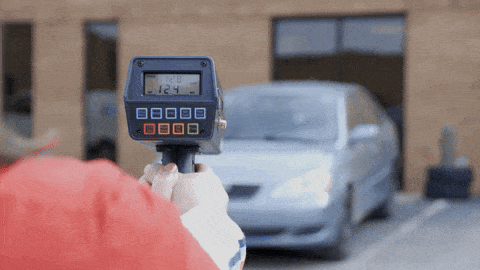States Where Radar Detectors Are Illegal 2024: What You Need to Know
What states are radar detectors illegal?

So, What states are radar detectors illegal? When it comes to hitting the open road, many drivers look for ways to keep themselves out of trouble, and one popular gadget is the radar detector. But before you mount that device on your dashboard, it’s crucial to know where you’re legally allowed to use it. Let’s dive into the details about the states where radar detectors are illegal and everything you need to know about using these devices.
What Exactly Is a Radar Detector?
First things first, let’s clarify what a radar detector is. A radar detector is an electronic device used by motorists to detect if their speed is being monitored by law enforcement using a radar gun. The idea is simple: if you know where the cops are, you can slow down and avoid a ticket. Sounds great, right? But there’s a catch – they’re not legal everywhere.
How Do Radar Detectors Work:
Radar detectors work by detecting the radio waves emitted by radar guns used by law enforcement to measure the speed of vehicles. Here’s a detailed breakdown of how they function:
- Detection of Radar Signals:
- Radio Wave Emission: Radar guns emit radio waves that bounce off moving vehicles and return to the radar gun. The radar gun then calculates the speed of the vehicle based on the Doppler effect—the change in frequency of the returning waves.
- Signal Reception: Radar detectors have antennas designed to pick up these specific radio frequencies used by radar guns. When a radar gun’s signal is detected, the radar detector alerts the driver.
- Types of Radar Bands:
- X Band: One of the oldest radar bands used for speed detection, operating at 8-12 GHz.
- K Band: A common band used in speed enforcement, operating at 18-27 GHz.
- Ka Band: A newer, more complex radar band, operating at 27-40 GHz. This band is often used by modern radar guns because it offers a higher degree of accuracy and is more challenging to detect.
- Ku Band: Used in Europe and some other regions, operating at 12-18 GHz.
- Signal Processing:
- Signal Detection: When the radar detector’s antenna picks up a radar signal, it processes the signal to determine its strength and frequency.
- False Alarms Reduction: Advanced radar detectors use digital signal processing (DSP) to filter out non-police radar signals, such as those from automatic doors or other electronic devices, to reduce false alarms.
- Alert System:
- Visual Alerts: Most radar detectors have a display that shows the type of radar band detected and its strength. Some high-end models also include GPS functionality to warn of known speed traps and red-light cameras.
- Audible Alerts: In addition to visual alerts, radar detectors also provide audible alerts to warn the driver, allowing them to react even if they are not looking at the display.
- Laser Detection:
- Lidar Detection: Some modern speed enforcement tools use lidar (light detection and ranging), which uses laser light rather than radio waves. Many radar detectors also include lidar detection capabilities, though detecting lidar is more challenging due to its narrow beam.
- Legal Considerations:
- Legality: The use of radar detectors is legal in most states in the U.S. but is banned in Virginia and Washington, D.C. Additionally, commercial vehicle drivers are prohibited from using radar detectors nationwide. In Canada, the use of radar detectors is illegal in most provinces.
Federal Laws vs. State Laws
Before we get into the specific states, it’s essential to understand the difference between federal and state laws regarding radar detectors. On a federal level, radar detectors are illegal in any commercial vehicle weighing over 10,000 pounds. This means if you’re driving a big rig or a heavy-duty commercial vehicle, you’re out of luck nationwide.
States Where Radar Detectors Are Illegal
In which states are radar detectors illegal? Now, let’s break down the states where radar detectors are outright illegal. Spoiler alert: it’s a short list, but knowing it can save you from hefty fines and potential legal trouble.
- Virginia
- Why Illegal? In Virginia, radar detectors are banned in all vehicles. The law is strict, and even possessing a radar detector can result in a ticket.
- Enforcement: Law enforcement in Virginia uses radar detector-detectors, which can identify if a car is using one, so it’s best not to risk it.
- Washington, D.C.
- Why Illegal? Much like Virginia, the nation’s capital has banned radar detectors in all vehicles.
- Enforcement: Police in D.C. are vigilant, and penalties can include fines and the confiscation of the device.
States with Specific Restrictions
While Virginia and Washington, D.C., are the only places where radar detectors are entirely illegal, several other states have specific restrictions you should be aware of:
- Illinois
- Restriction: Radar detectors are legal for private vehicles but illegal in commercial vehicles over 10,000 pounds.
- Why? This is in line with the federal law concerning commercial vehicles.
- New York
- Restriction: Similar to Illinois, radar detectors are banned in commercial vehicles over 10,000 pounds.
- New Jersey
- Restriction: Also restricts radar detectors in commercial vehicles over 10,000 pounds.
What About Laser Jammers?
Related: Top Radar Detectors 2024
Check Out Our Fresh Video Reviews !
You might be thinking, “What if I use a laser jammer instead?” Good question! Laser jammers work differently from radar detectors. Instead of detecting radar waves, they emit a signal to block or scramble the laser guns used by law enforcement. However, these devices come with their own set of legal concerns.
- Virginia and Washington, D.C.: Both radar detectors and laser jammers are illegal.
- California and Minnesota: Specifically ban laser jammers, though radar detectors are allowed.
- Other States: Some states have vague laws regarding laser jammers, so it’s best to research the specific regulations in your state before using one.
Why Are They Illegal in Some States?
You might wonder why some places have taken such a hard stance against radar detectors. The primary reason is safety. Law enforcement argues that radar detectors encourage speeding, which can lead to more accidents. By banning these devices, they hope to promote safer driving habits.
Penalties for Using Illegal Radar Detectors
So, what happens if you get caught using a radar detector where it’s illegal? Penalties vary by state but can include:
- Fines: Typically range from $50 to $500, depending on the state and whether it’s a repeat offense.
- Confiscation: Police may confiscate the radar detector.
- Points on Your License: In some states, you might receive points on your driving record, which can affect your insurance rates.
Tips for Staying Out of Trouble
If you’re a fan of radar detectors, here are a few tips to ensure you stay on the right side of the law:
- Know Your State Laws: Always check the latest laws in your state and any states you plan to drive through.
- Use Responsibly: Even if radar detectors are legal in your state, use them responsibly. Speed limits are there for a reason – to keep everyone safe.
- Stay Updated: Laws can change, so make it a habit to stay informed about any new regulations.
Final Thoughts
Radar detectors can be a helpful tool for avoiding speeding tickets, but it’s crucial to know where you’re legally allowed to use them. With Virginia and Washington, D.C. outright banning these devices and several states imposing restrictions on commercial vehicles, being informed can save you from legal headaches.
Remember, the best way to avoid speeding tickets is to drive safely and obey speed limits. Radar detectors might give you a heads-up, but nothing beats good old-fashioned safe driving. So, next time you’re on the road, keep these laws in mind and drive smart!











One Comment